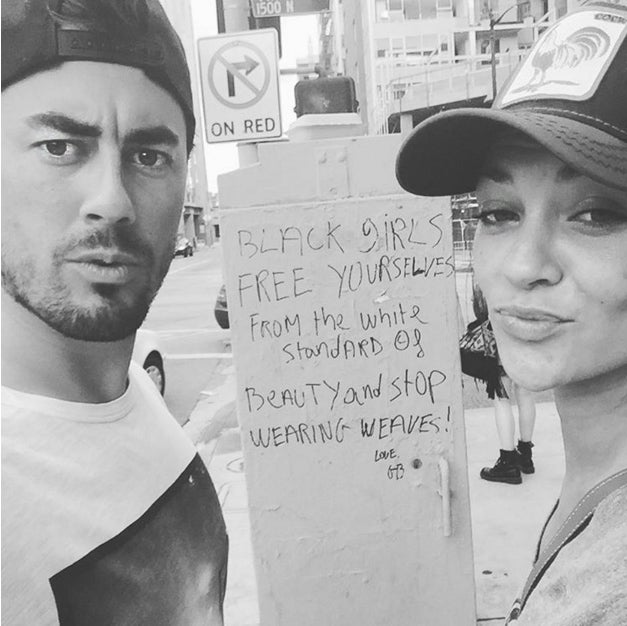
Last weekend, former Gossip Girl star, Jessica Szohr was under fire for an Instagram post in which she and a friend posed in front of a sign that read “Black girls, free yourselves from the white standard of beauty and stop wearing weaves!” she captioned the post with “#WeaveFree” #ExceptWhenImWeaving.”
While one could argue that as a general rule of thumb, appearance is a sensitive subject for women, it is a particularly sensitive issue amongst Black women who have been reared in the shadows of racism and White supremacy—both of which have affected everything from our socio-economic status to the ways in which we view the world and ourselves. Society has dismissed the image of Blackness, and unfortunately—in true trickle-down form— many people of color have unconsciously done the same. As a result, Black women have been boxed-in; our beauty practices placed under a societal microscope, and our motives or hair philosophies questioned.
Why It Took Me 10 Years To Quit My Weave
Weave use among Black women is multi-faceted and varies from protective styling and preference, to reasons of health and yes, self-hate. Whether or not Szohr’s post was done in jest or intended to free or condemn Black girls, the real issue surrounding the conversation of curly vs. straight and natural vs. weave is rooted in the psychology of beauty and self-perception. The issue is Black beauty is still being regulated, and we’re on the fence; caught between defining beauty for ourselves, radically opposing the norm— or being natural— and drifting or embracing western standards of beauty. It’s a matter of preference, and in western society when it comes to hair—and other things— Black women have seemingly been denied the option of being pro-choice.
How To Tweak Your Hair Regimen For Fall
The Essence Ultimate Natral Hair Dictionary
Ultimately, whether black, white, yellow or green, women have the right to choose their own path to beauty. And, while a Black woman should always find beauty in her natural state, her preference for extensions should not question or reduce her free will to an act representative of slave mentality; therefore, assuming that she is operating within the confines of someone else’s definition of beauty.
If your style is based upon preference and not rooted in self-hate, then you do not need to “free yourself” from anything. You, as a Black woman are not precluded from having a versatile hair regimen.
